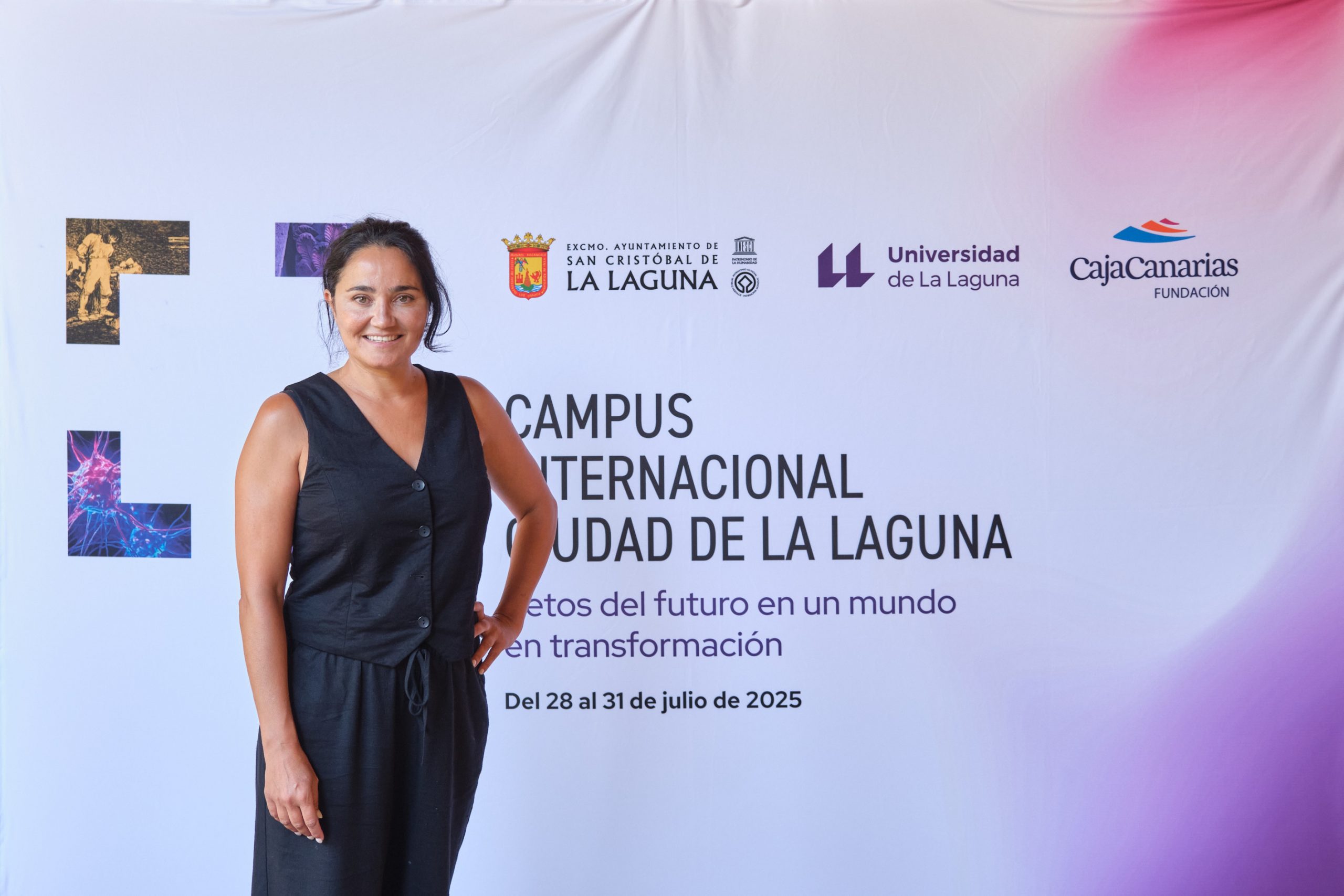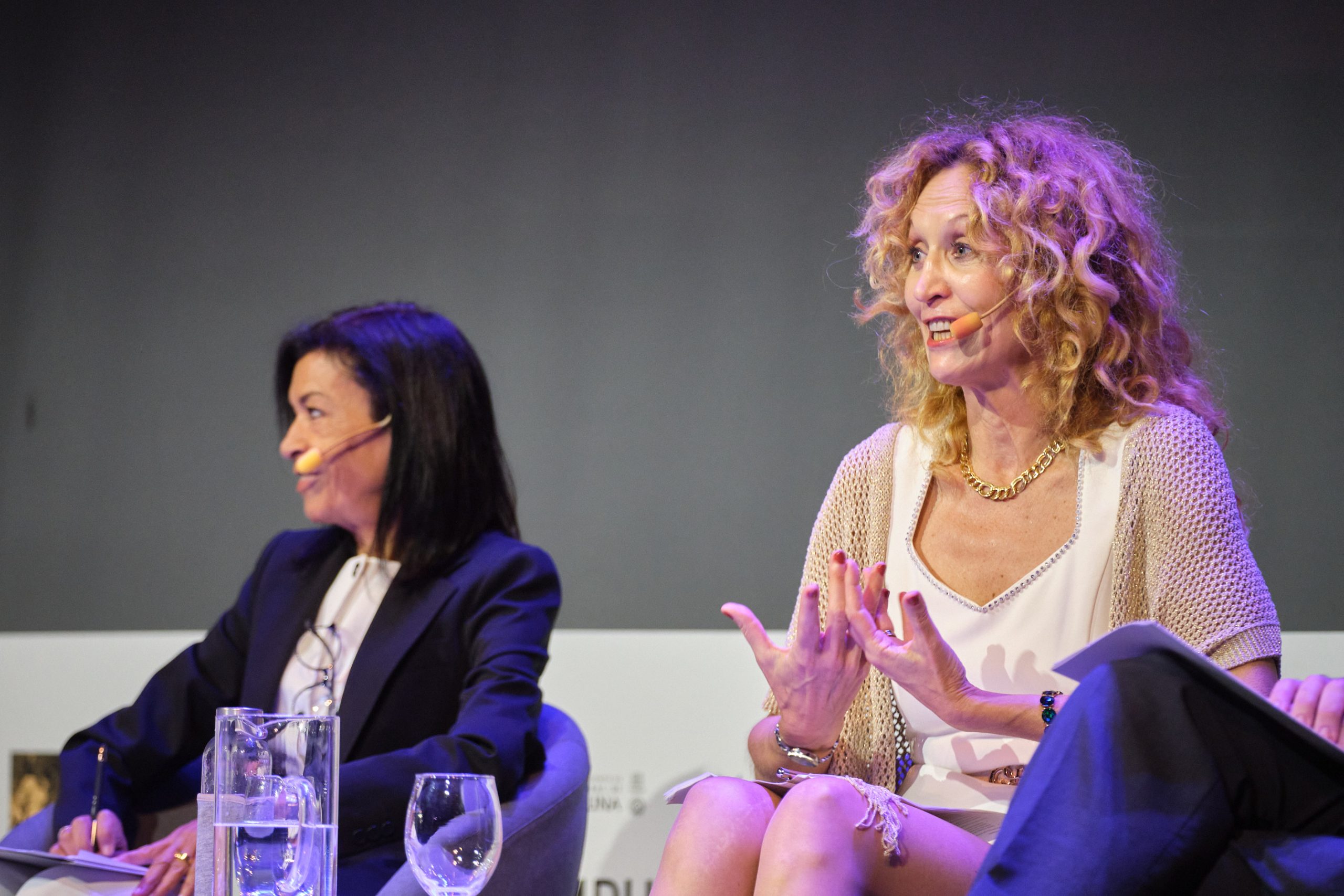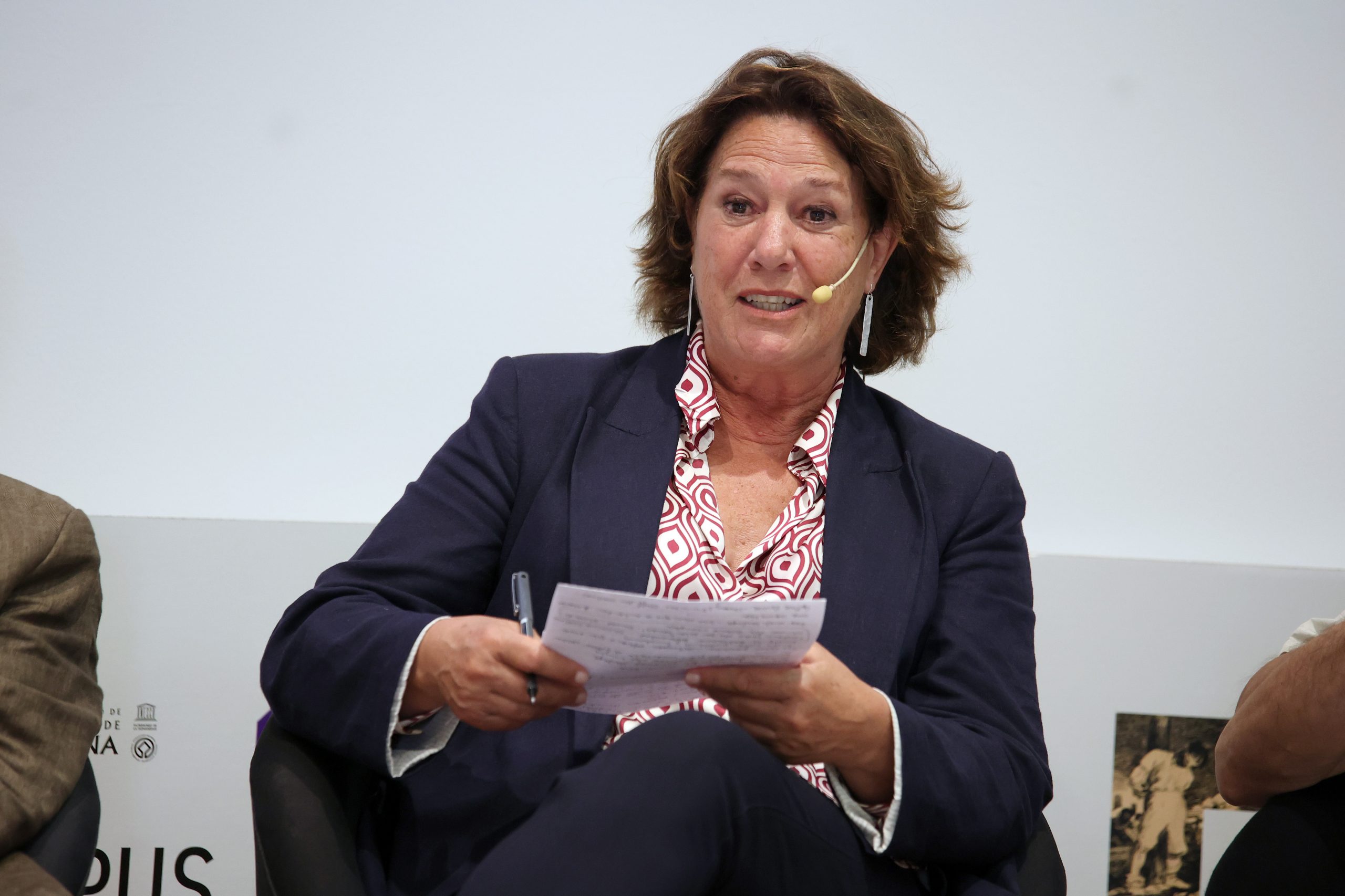Interview with Carlos Batallas Sordo, speaker of the course “The Disasters of War”

Carlos Batalla Sordo has been a member of the Spanish Red Cross for over 25 years, where he has led humanitarian operations in conflict zones such as Yemen, Palestine, and the Democratic Republic of Congo, promoting the protection and dignity of victims. He also currently teaches at IE University.
During her participation in the first edition of the Ciudad de La Laguna International Campus, she delivered a lecture to attendees focusing on the human side of humanitarian action, emphasizing the importance of the often-invisible victims through real-life testimonies. As one of Spain's leading voices in the field of humanitarian aid, she drew our attention to the dignity of those suffering the ravages of armed conflict.
Based on the thematic focus of the Campus in which you participated, what is your perspective on the nature and evolution of armed conflicts in the 21st century?
Undoubtedly, since World War II, the issue of armed conflict has evolved in a rather complicated way. Previously, wars were fought between opposing armies, but now we are seeing increasingly violent conflicts occurring within states. For example, between non-state armed groups and state armed groups, or between different non-state armed groups. And caught in the middle of all this are the civilians.
I always mention that of the 70 million people who died in World War II, about 75% were civilians, and this trend is not only not decreasing, but is actually increasing. In other words, wars today are "fought" around civilians, who are suffering more and more.
In your experience on the ground, what are the main consequences of the war on the daily lives of the local population?
I believe the first major consequence, which we sometimes don't realize, is the loss of dignity. This comes from leading a relatively normal life, and then suddenly having everything disrupted by a conflict.
Suddenly you can't buy food for your children, or medicine, or go to the doctor. The hospitals are functioning, but poorly, and if someone is injured, they could die in your arms. It's an enormous loss of the ability to take care of ourselves, to maintain control over our own lives and our families, and therefore, the dignity of being human is lost.
Humanitarian organizations provide assistance, set up hospitals, distribute food, but that loss of dignity is what hits hardest.
Rwanda, Angola, Guatemala… In her presentation at the Campus, she shared real stories of people living in conflict zones. From her experience, what universal lessons can we draw about resilience and human dignity in these situations?
In general, even when people are in a terrible situation, there is always hope that something better will come. That resilience, that humanity of fighting not only for oneself, but for one's family, for the country, for the people one lives with, is what maintains equilibrium.
Because if you lose hope, you lose everything. And that's something I've always found in every place I've worked. Even though it seems like we're living in pessimistic times, there's always a small glimmer of hope that we can live in peace again.
How can societies that do not experience armed conflict develop greater empathy towards populations affected by war?
I believe that empathy exists because we are human beings, and one of the core principles of the Red Cross is humanity. We are called to action by human suffering and, although it may seem difficult, to try to prevent it as much as possible or, at least, reduce it.
Societies not at war also possess considerable empathy, because it is precisely this sense of humanity that makes us react to what we read in the newspapers. We react to what we see, but it's crucial to understand that conflicts are not humanitarian crises, they are political. States are the only entities that can truly end wars; humanitarian aid is merely a band-aid that provides some temporary relief.
In this sense, what do you think we can do as individuals or communities to contribute to a more just and supportive world in the face of conflicts?
I believe we have a very important role to play in our societies. We must care for those around us—migrants arriving from other countries, those living in our cities, people in need—because these small gestures strengthen collective empathy.
And at the same time, we must demand that our governments act and take measures to end the suffering. For example, as has been done recently with all the demonstrations in support of Gaza.
Ultimately, I believe we must take good care of those close to us and, at the same time, demand that our governments take the necessary measures to end suffering.
Humanitarian workers face numerous risks in the course of their work. How does the Red Cross, the organization you belong to, work to protect them?
The issue of the safety of humanitarian workers is terrible. Until 1995, there were hardly any attacks or injuries, but since 2000, especially after the attack on the Twin Towers, the situation has become much more complicated. Today, safety is a priority for all organizations: we have extensive training and very clear protocols. Institutions provide many sessions to raise awareness of the dangers, with instructions on how to avoid putting ourselves at risk.
It's one thing to take risks to help, and quite another for those risks to prevent aid from reaching those in need because humanitarian workers are attacked or killed. Furthermore, it's not just us who are at risk, but also the people we assist, who can become victims when resources are targeted. For example, imagine we're distributing food and the enemy army tries to steal it, even at the cost of killing people. In such cases, we must be extremely cautious, protecting not only our team but also those other people.
Therefore, security management is becoming increasingly professional and is based on three pillars: training, training, and more training.
After participating in the first edition of the Ciudad de La Laguna International Campus, how would you rate your experience overall?
The Campus was a fantastic opportunity to meet not only with top-level speakers, as the quality was quite high, but also with interested people who participated as audience members in the presentations. This allowed us to hear questions and comments that, in our daily lives, we sometimes overlook, and which made us reflect on the current situation.
The idea that societies must be more empathetic to the suffering caused by wars, demanding that governments take action, arose precisely from a discussion during a colloquium within the course 'The Disasters of War'. And discussing these issues in a setting like San Cristóbal de La Laguna is ideal: without the pressure of daily work, where you can converse and share ideas in a relaxed atmosphere.
In that sense, my participation has been profoundly enriching and very positive. I hope to continue being involved in the future, because it represents a valuable intellectual challenge and a high-quality academic and educational initiative.
What role do you think research and academic debate play in improving humanitarian work on the ground?
It plays a fundamental role, because when you're on the ground you're working, immersed in your own world, and you lack the necessary distance to truly analyze what's happening. It's not about the day-to-day, but about understanding the major trends in conflicts, as I explained earlier: civilians are increasingly at the center, more armed groups are emerging, and there are more internal conflicts.
Saying everyone must obey the law is easy; the difficult part is understanding how to achieve this and what can motivate groups to comply. That's where academia and the University of La Laguna come in, promoting these kinds of events where genuine reflection is possible.
We can share our experience on the ground, the direct contacts we have had, and, through a methodology and a calm analysis, obtain guidelines and orientations that help us deal with these armed groups, so that they themselves contribute to protecting people who do not participate in hostilities.
And to conclude, what is your perspective on the short and long-term evolution of conflicts in the 21st century?
In the short term, I think the situation is going to worsen. Since 2022, when Russia invaded Ukraine for the second time, there has been a profound questioning of the international order that emerged after the Second World War. So many things have been thrown off, so many relays have been switched off, that we are now quite disoriented, and everyone is doing not only what they want, but what they can.
I think things will get a little worse in the short term. However, I'm cautiously optimistic. Humanity has known what it's like to live in a world where, although there are always conflicts (right now there are more than 60 active wars), war wasn't as total as during the last great world war. And I don't think we're going to accept a return to that kind of conflict, where anything can happen.
Little by little, when we hit rock bottom, we will begin to climb out of this pit and once again demand that our politicians and governments respect the rules. We will return to a system—whether new or not—that may not resemble the one of 1945, but where conflicts are regulated and resolved peacefully. Not exclusively with the intention of annihilating the enemy, which is what seems to be happening now.
So, although I don't see the short term as very bright, I am confident that there will be a global reaction to ensure that conflicts are resolved peacefully again.












